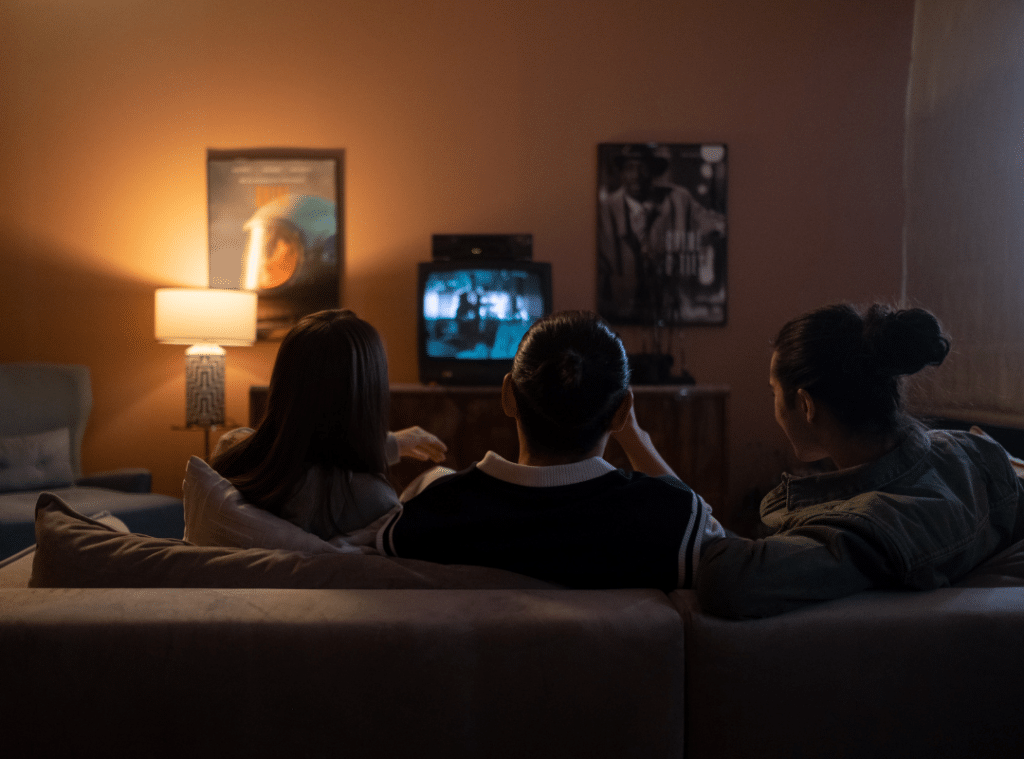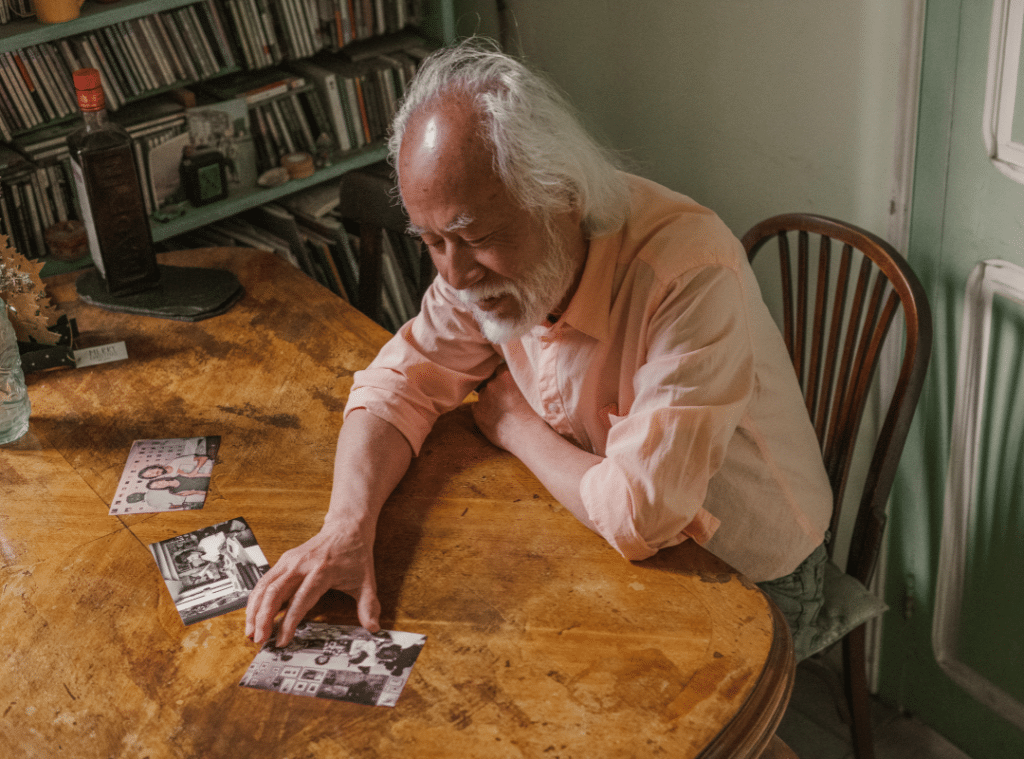Meaningful Activities for Dementia Patients at Home
Creating enriching activities for dementia patients at home can foster joy, connection, and emotional well-being. Through art, music, storytelling, and hands-on tasks, caregivers can offer comfort and meaningful moments that enrich the lives of loved ones with dementia.
Whether you’re exploring creative hobbies or sensory games, these thoughtful ideas, rooted in love and familiarity, can make a powerful difference. With a little imagination and patience, daily life becomes an opportunity for connection and healing.
Creative Activities to Foster Expression
Helping your loved one engage in creative projects supports emotional expression and recalls familiar memories. These memory care activities include drawing, coloring, or painting using vibrant materials. These artistic outlets allow individuals with dementia to convey feelings they may no longer be able to articulate verbally.
By adding background music from earlier decades or integrating film, you amplify emotional resonance. You can even pair these moments with emotional connections, turning creativity into healing.
Engaging Arts and Crafts Projects
Craft activities for dementia patients offer hands-on stimulation and boost self-confidence. Finger painting, sponge art, or seasonal decor are accessible and joyful. Provide colorful paper, glue, felt, or nature-based items like leaves.
Arts and crafts also encourage tactile exploration and are easy to adapt based on your loved one’s abilities. Group crafting sessions, such as art activities for seniors, foster community and deepen social ties.
Collage Creation and Memory Albums
Creating memory albums is an excellent way to trigger positive memories and promote storytelling. These memory care activities tap into emotional recall. Use images from family collections or magazines, and invite your loved one to arrange them freely.
Engaging Visual Prompts
Visual prompts offer a bridge to the past. Let your loved one create themed collages of family vacations or hobbies. These prompts stimulate recognition and encourage dialogue.
- Select familiar imagery
- Let them choose the placement
- Use hobbies or themes they relate to
- Prompt with questions: “What do you remember about this trip?”
Adding structure, like that found in memory care-assisted living, can heighten engagement.
Personal Storytelling Opportunities
Encourage your loved one to speak freely about each image. These moments are prime opportunities for fun questions to ask dementia patients, such as “What games did you play as a kid?” or “What was your favorite holiday?”
These exchanges offer emotional warmth and can even be preserved in interactive memory books, keeping their stories alive for the family.
Nostalgic Memory Sharing
Scrapbooking or making collages together is an act of love. It provides continuity, enhances memory care activities, and boosts emotional stability. Old family photos, favorite places, or familiar faces all make ideal collage content.
Reminiscence Activities for Connection
Reminiscing through activities at home is a powerful way for dementia patients to maintain bonds. Sensory cues, such as sight, touch, smell, or sound, can ignite joy.
Sensory Cues for Memory
- Scents. Bake familiar recipes or diffuse favorite essential oils
- Textures. Include objects like soft blankets, sandpaper, or buttons
- Music. Sing or listen to songs from their youth
- Photos. Incorporate visuals with emotional significance
These techniques enhance memory care activities and bring comforting familiarity.
Storytelling Through Photo Albums
Use albums to prompt conversations and fun questions to ask dementia patients, such as: “Who is this in the photo?” or “Do you remember what happened that day?”
These simple tools can spark hours of heartfelt engagement and are especially effective when done patiently and lovingly.
Musical Engagement Through Songs
Music resonates deeply with those experiencing dementia. By incorporating music-related activities for dementia patients at home, you can uplift their mood and reduce their anxiety.
- Create customized playlists from their era
- Encourage sing-alongs with family or caregivers
- Use rhythmic instruments like tambourines or shakers
- Ask, “What does this song remind you of?”
Songs work as auditory memory triggers and promote joyful bonding.

Classic Movies and Nostalgic TV Shows
TV and film can offer immense comfort. Choose age-appropriate classics and discuss familiar characters, music, and settings. This can be a gentle way of taking dementia patients out of their environment by transporting them through familiar media.
Suggestions include:
| Genre | Film or Show |
| Comedy | “I Love Lucy” |
| Drama | “Gone with the Wind” |
| Musical | “Singin’ in the Rain” |
| Family | “The Andy Griffith Show” |
These shows can bridge gaps in communication while offering emotional security.
Hands-On Activities for Cognitive Stimulation
Activities like puzzles, gardening, or simple household chores offer structure and accomplishment.
- Puzzles. Large-piece puzzles engage problem-solving
- Gardening. Tending to herbs or flowers evokes past experiences
- Folding laundry. Provides familiar tactile engagement
These activities for dementia patients at home encourage independence and cognitive vitality.
Accessible Resources for At-Home Caregivers
If you’re seeking structured support, many organizations offer free dementia activity packs online. These printable tools include games, conversation starters, and sensory worksheets that make planning easier.
Some recommended resources include:
- Alzheimer’s Society Activity Ideas
- Dementia UK Free Activity Resources
Incorporating free dementia activity packs ensures a fresh rotation of interactive projects that promote stimulation and well-being.
Discover the Joy in Daily Moments
Engaging in activities for dementia patients at home doesn’t have to be elaborate. Even simple walks in the garden, folding napkins, or asking lighthearted questions can become rich experiences.
Caregivers can provide a sense of peace by recognizing that small, repeated routines help those with dementia feel secure. With resources like free dementia activity packs and ideas like craft activities for dementia patients, you can continue bringing comfort and dignity into daily living.
Reconnect and Rediscover Together
By incorporating creative, sensory-rich, and emotionally engaging routines, you’re doing more than passing the time—you’re building bridges to your loved one’s heart. These moments can bring renewed energy and laughter, even amid challenge.
Whether you’re using fun questions to ask dementia patients, trying new memory care activities, or simply taking dementia patients out of their environment through music or movies, you are offering joy.
For more information, call us at 559-446-1266 or schedule a tour at Westmont of Fresno.
How Do The Costs Of Moving Into A Quality Senior Care Community Compare With The Costs Of Staying At Home?Compare The Costs of Senior Living vs Staying at Home
Frequently Asked Questions
What activities are good for dementia patients?
Engaging in simple, familiar, and meaningful activities can benefit dementia patients. These include listening to music, gardening, folding laundry, doing puzzles, and looking through photo albums. Such activities help reduce agitation and support cognitive function. Tailoring activities to the individual’s past interests and current abilities is important.
How to care for a dementia patient at home?
Caring for a dementia patient at home involves creating a safe, structured, and supportive environment. Establishing routines, simplifying tasks, and offering reassurance are key strategies. Providing emotional support, ensuring proper nutrition, and helping with hygiene and medication management are also crucial. Patience and flexibility are essential, as the condition can change daily.
How to improve memory in dementia patients?
While dementia is a progressive condition, specific strategies can help maintain memory for longer. These include cognitive stimulation like memory games, consistent routines, physical exercise, and a healthy diet. Social engagement and music therapy can also support brain function. Consulting with a healthcare provider for personalized approaches is recommended.
What to say when a dementia patient wants to go home?
When a dementia patient wants to go home, responding with empathy rather than correction is best. Reassure them by saying something like, “You’re safe here, and we’ll make sure everything is okay.” Redirecting their attention to a favorite activity or topic can help ease their anxiety. Avoid arguing, as it can increase confusion and distress.








